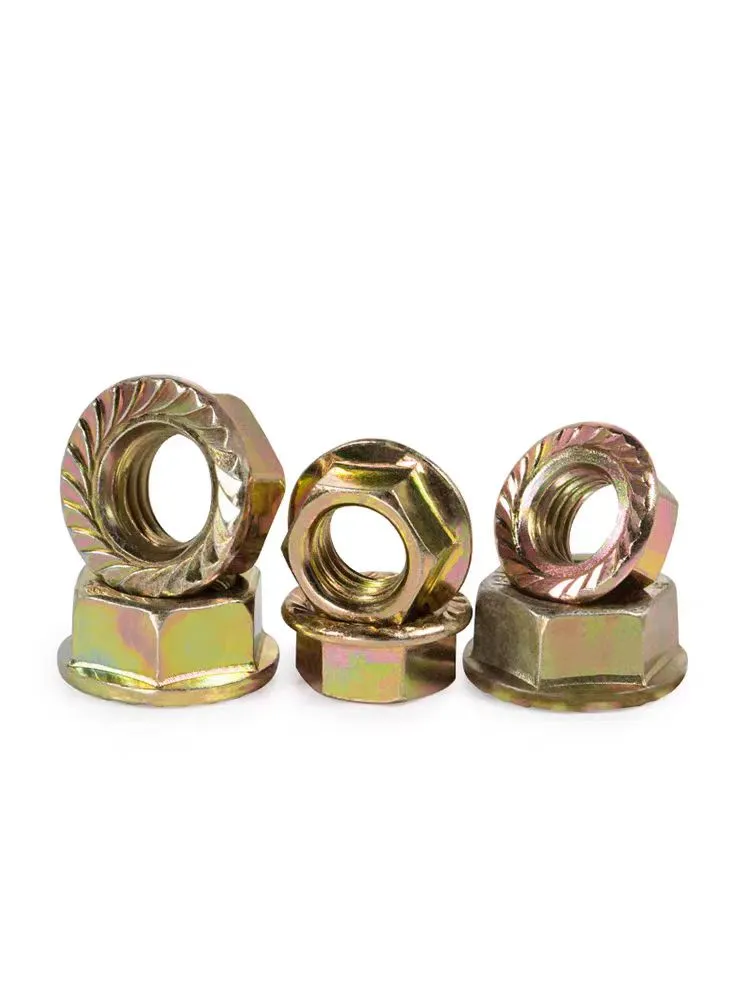

different types of fasteners
Dec . 06, 2024 06:42 Back to list
different types of fasteners
Different Types of Fasteners An Overview
Fasteners are crucial components in the construction, manufacturing, and DIY industries. They play a pivotal role in holding materials together, ensuring structural integrity, and enabling efficient assembly. Understanding the different types of fasteners available, their specific applications, and their unique properties is essential for selecting the right one for any project.
1. Bolts
Bolts are among the most commonly used fasteners. They typically consist of a head and a threaded shaft, allowing them to be used with nuts or driven directly into pre-tapped holes. Different grades of bolts, such as grade 5 and grade 8, indicate their tensile strength and hardness. Common applications for bolts include assembling machinery, constructing buildings, and securing large parts in automobiles.
2. Nuts
Nuts are hexagonal blocks with a hole in the center that corresponds to the threaded shaft of bolts. They provide a secure grip when tightened against the bolt, holding two or more components together. There are various types of nuts, including flat nuts, lock nuts, and wing nuts, each designed for specific applications. For instance, lock nuts are used to prevent loosening due to vibrations, making them ideal for applications in automotive and machinery sectors.
3. Screws
Screws are versatile fasteners characterized by a helical ridge known as a thread. They can be driven into materials like wood, metal, and plastic, creating their own internal thread. The major types of screws include wood screws, sheet metal screws, and machine screws, each tailored to specific materials. Wood screws are designed for use in timber, while sheet metal screws are intended for fastening thin sheets of metal.
4. Rivets
different types of fasteners

Rivets are permanent fasteners used to join materials, typically metal. They consist of a smooth cylindrical shaft with a head on one end. When installed, the other end of the shaft is deformed to create a second head, securing the materials together. Rivets are commonly found in bridge construction, aircraft manufacturing, and fabricating metal structures due to their ability to withstand shear and tensile loads.
5. Anchors
Anchors are specialized fasteners used to secure objects to concrete or masonry, providing stability in various applications. They come in numerous forms, such as expansion anchors, screw anchors, and adhesive anchors. For example, expansion anchors are designed to expand within the base material, offering a secure grip, while adhesive anchors rely on bonding agents for strength. These fasteners are commonly used in construction and renovation projects.
6. Washers
While not fasteners in the traditional sense, washers are essential components that enhance the performance of fasteners. They are flat discs with a hole in the center and are placed under bolts or nuts to distribute load, reduce vibration, and prevent leakage. There are several types of washers, including flat washers, lock washers, and spring washers, each serving a specific purpose in ensuring the reliability and longevity of a fastener assembly.
7. Clips and Clamps
Clips and clamps are fasteners that provide a temporary or permanent hold on components. Clips are often used in automotive and electrical applications to hold wires and cables in place. Clamps, on the other hand, are used to secure materials together, often during assembly or welding processes. They come in various shapes and sizes and are versatile across applications, from woodworking to fabrication.
Conclusion
The vast array of fasteners available today enables efficient and secure assembly across various industries. Choosing the right type of fastener is critical for ensuring both the safety and durability of any structure or product. By understanding the different types of fasteners and their applications, professionals and DIY enthusiasts alike can make informed choices, leading to successful project outcomes. Whether working with wood, metal, or masonry, the right fasteners can make all the difference in achieving reliable and lasting results.
Latest news
-
High-Strength Hot Dip Galvanized Bolts - Hebei Longze | Corrosion Resistance, Customization
NewsJul.30,2025
-
Hot Dip Galvanized Bolts-Hebei Longze|Corrosion Resistance&High Strength
NewsJul.30,2025
-
High-Strength Hot-Dip Galvanized Bolts-Hebei Longze|Corrosion Resistance&High Strength
NewsJul.30,2025
-
Hot Dip Galvanized Bolts-Hebei Longze|Corrosion Resistance&High Strength
NewsJul.30,2025
-
Hot Dip Galvanized Bolts - Hebei Longze | Corrosion Resistance, High Strength
NewsJul.30,2025
-
High-Strength Hot Dip Galvanized Bolts-Hebei Longze|Corrosion Resistance, Grade 8.8
NewsJul.30,2025

